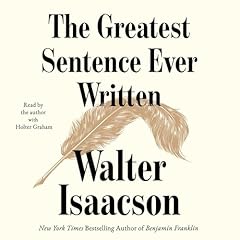
The Myth of the Rational Market
A History of Risk, Reward, and Delusion on Wall Street
No se pudo agregar al carrito
Add to Cart failed.
Error al Agregar a Lista de Deseos.
Error al eliminar de la lista de deseos.
Error al añadir a tu biblioteca
Error al seguir el podcast
Error al dejar de seguir el podcast
 Exclusivo para miembros Prime: ¿Nuevo en Audible? Obtén 2 audiolibros gratis con tu prueba.
Exclusivo para miembros Prime: ¿Nuevo en Audible? Obtén 2 audiolibros gratis con tu prueba.Compra ahora por $29.69
-
Narrado por:
-
Alan Sklar
-
De:
-
Justin Fox
“Do we really need yet another book about the financial crisis? Yes, we do—because this one is different….A must-read for anyone who wants to understand the mess we’re in.”
—Paul Krugman, New York Times Book Review
“Fox makes business history thrilling.”
—St. Louis Post-Dispatch
A lively history of ideas, The Myth of the Rational Market by former Time Magazine economics columnist Justin Fox, describes with insight and wit the rise and fall of the world’s most influential investing idea: the efficient markets theory. Both a New York Times bestseller and Notable Book of the Year—longlisted for the Financial Times Business Book of the Year Award and named one of Library Journal Best Business Books of the Year—The Myth of the Rational Market carries readers from the earliest days of Wall Street to the current financial crisis, debunking the long-held myth that the stock market is always right in the process while intelligently exploring the replacement theory of behavioral economics.
Los oyentes también disfrutaron:




















Las personas que vieron esto también vieron:


Takes patience, but pays off
Se ha producido un error. Vuelve a intentarlo dentro de unos minutos.
The author skillfully reveals the evolution of opinion about the market forces. The reader will see the logic of each step and, If he thinks it through, will take away a greater death of understanding from each step.
Enthralling storytelling style unfolding history of market analysis
Se ha producido un error. Vuelve a intentarlo dentro de unos minutos.
An Awesome Histoy of Financial Economics
Se ha producido un error. Vuelve a intentarlo dentro de unos minutos.
Excellent unbiased overview of irrational markets
Se ha producido un error. Vuelve a intentarlo dentro de unos minutos.
The better book on the history of economic thought, I would say, is The Grand Pursuit. To some degree, this book picks up where that one leaves off (in the mid-twentieth century, though TGP does talk somewhat as Amartya Sen). Anyway, if you're interested in the history of economic thought and haven't read that one, I'd start there and then consider this. If you're more interested in how the financial markets work today, there are a few books on this subject (Dark Pools, More Money than God--but I'm actually just starting these, so I can't tell you yet whether they're worth it). If you're more just looking for a good read on recent financial market stuff, one of the Michael Lewis books is probably best, The Big Short or Boomerang.
Probably most interesting to economists
Se ha producido un error. Vuelve a intentarlo dentro de unos minutos.


